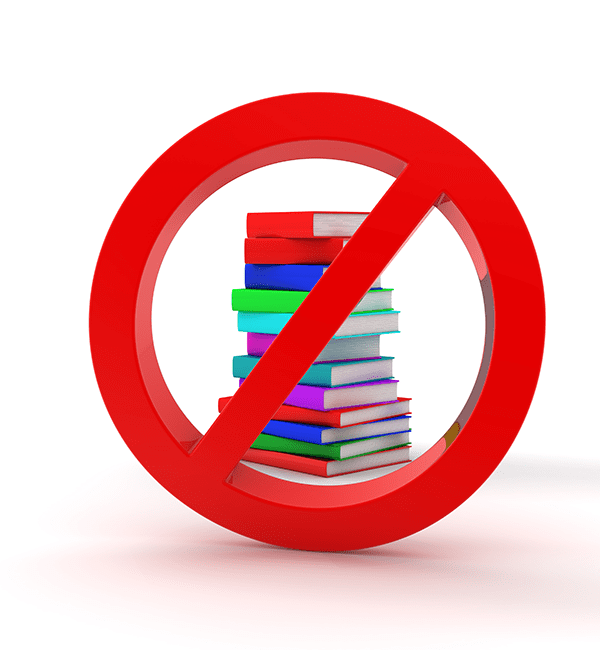By: Karen Janke, Library Director, Edward Neisser Library
Banned Books Week began in 1983 in response to a surge in challenges to books in school and public libraries. A challenge is an attempt to remove or restrict materials based on the objections of a person or group. A banning is the removal of those materials. Here we are, 40 years later, and attempts to ban books are once again on the rise. In 2022, the American Library Association (ALA) documented 1,269 demands to censor library books, the highest number of challenges since ALA began tracking these attempts twenty years ago. This annual observation allows us all to support the freedom to read and show our support to librarians, educators, authors, publishers and readers fighting against censorship.
Prior to 2021, most challenges to library books were for single titles, but now people are coming to school board meetings with lists of titles, many featuring books their library doesn’t have and that the objecting party has not actually read. In 2021, 40% of cases involved 100 or more books. From July 2021 to June 2022, PEN America tracked the content of the books being banned, finding that 41% of banned books explicitly address LGBTQ themes, 40% feature BIPOC characters, and 21% address race and racism. These bans are attempts to restrict conversations around “divisive topics,” a code word for discussions about race, gender identity, and sexual orientation and our country’s legacy of racism. They often couch their censorship efforts in a desire to protect children from “inappropriate” sexual content or “offensive” language.
Today, these bans are not typically individual, isolated acts, rather a concerted effort by organized groups such as Moms for Liberty, MassResistance and No Left Turn in Education, or local grass-roots groups that find a home on social media. These groups distribute lists of books and instruct their members in how to challenge them. Not content with merely challenging the books, members of these groups have targeted librarians, teachers and school board members with personal attacks through social media.
Illinois is not immune. In 2022 there were 67 attempts to ban books in Illinois. In response to the rising nationwide trend, Illinois passed a state law this summer to prohibit book bans in public schools and libraries. The law goes into effect in January 2024 and directs public libraries to adopt or write their own version of the ALA’s Library Bill of Rights, which asserts that materials should not be removed because of partisan or doctrinal disapproval. Parents have the right to guide their own children’s reading, but do not have the right to make these decisions for other families. Libraries who do not comply with this new law become ineligible for grants from the Illinois State Library which funds programming, construction projects, collections, internet access and other vital services.
The impact on the library and education workforce can be profound. Librarians have become the targets of this culture war: accused of grooming children and promoting pornography, harassed online, called out by name by elected officials and reported to law enforcement officials. Having your professional expertise and ethics questioned on the public stage can be isolating, so it’s no wonder educators and librarians are experiencing burnout. Sadly, some are leaving the profession.
Is there good news? Yes! Most challenges are not successful, and this is due to the commitment of librarians, teachers, parents and other concerned citizens to uphold the First Amendment principle of free speech and the freedom to read. These challenges are the work of a vocal minority, and don’t represent the views of a majority of voters: 71% of people from all parties oppose efforts to remove books from public libraries.
Future blog posts this month will explore the harm caused when books are banned, and ways to respond and support those fighting against them.
https://www.ala.org/advocacy/intfreedom/librarybill
https://www.nytimes.com/2022/07/06/books/book-ban-librarians.html
https://www.nytimes.com/2022/05/01/books/maia-kobabe-gender-queer-book-ban.html
https://ncte.org/blog/2020/09/41588/
https://diversebooks.org/how-to-support-diverse-books-during-a-book-ban/

Join the Erikson family with monthly news + events updates shared by academics, community members, and families.